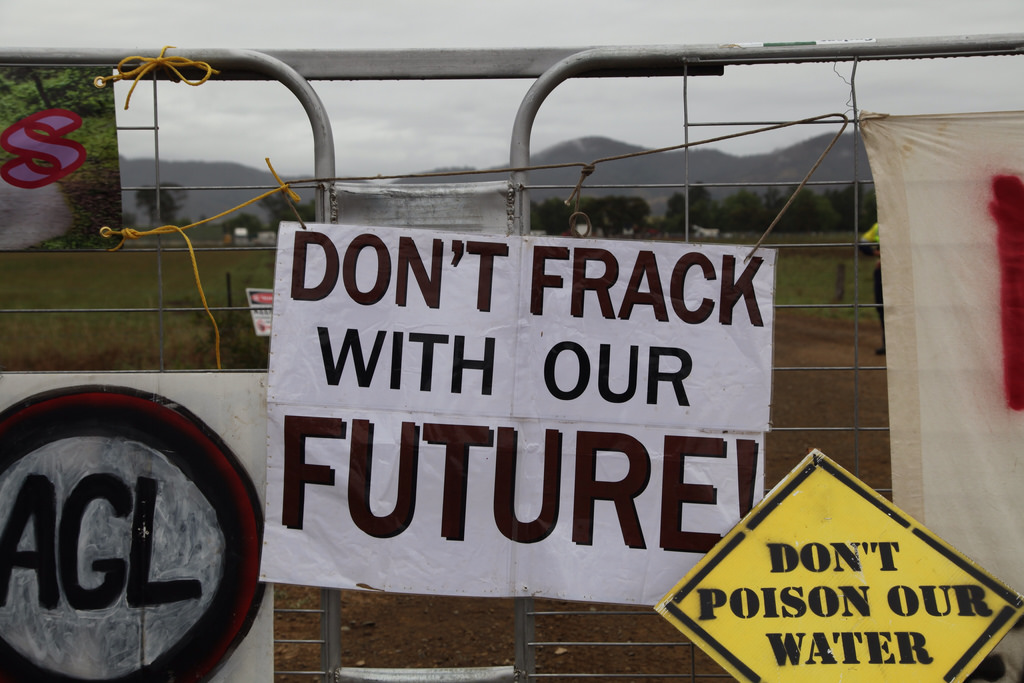
Fracking “Could Cause Earthquakes On Up To Half Of Land Licensed In UK”
The exploitation of shale gas on half of the land licensed by the UK Government for fracking operations could trigger earthquakes, according to a leading seismologist and former energy advisor to the Tory Government.
The exploitation of shale gas on half of the land licensed by the UK Government for fracking operations could trigger earthquakes, according to a leading seismologist and former energy advisor to the Tory Government.
In a report released today in the House of Commons in London, but yet to be published online, Professor Peter Styles, Emeritus Professor in Applied and Environmental Geophysics at Keele University in the UK, says hydraulic fracturing in former coal mining areas increases the probability of earthquakes on faults on land that has already been mined.
According to Styles, who has studied the maps of former coal mining areas, the data shows former coal mining areas “are riddled” with potentially dangerous faults capable of producing seismic activity greater than a 0.5 magnitude.
This is the level at which fracking operations must be shut down under the British Government’s so-called traffic light system. In the case of coalfield areas, he warns: “We have forgotten about mining. Mining has not forgotten about us.”
Worrying, he also argues that seismic surveying equipment used by the fracking industry is not capable of detecting these faults. Styles is so worried he is calling for an immediate moratorium until the full extent of the risk can be properly assessed.
There is reason to be concerned. In 2011, two earthquakes in Lancashire shook Blackpool after the fracking company, Cuadrilla, started exploratory shale drilling.
It has taken until now for the fledgling fracking industry to re-start drilling, although it faces huge public opposition, and earlier this morning there were further community protests against Cuadrilla.
Indeed, in a devious political way of circumventing local democratic accountability and opposition, last week the Government announced new plans that means that shale companies would be able to drill test sites in England without even having to apply for planning permission.
Last week’s announcement was met with anger by environmental groups and Britain’s only Green MP. Greenpeace said the government had made “exploratory drilling as easy as building a garden wall or conservatory”. Caroline Lucas MP, called the plans “shocking” before adding “Britain’s fracking experiment was on life support and now the government is trying its best to shock it back into life.”
So now we have the extremely dangerous prospect of exploratory drilling in ex-coalfield areas where there is a risk of earthquakes, where no one knows where the fault lines are, and which a fracking company can undertake without having to tell anyone about. It is not surprising, therefore, that Professor Styles has called for more rigorous checks to identify the dangers in coalfield areas.
In the report, entitled ‘Fracking and Historic Coal Mining: their relationship and should they coincide?’ Professor Styles asks the question does fracking pose “a serious risk of damaging seismicity?” He concludes that “In many areas, proposed shale gas activities lie beneath historic coal mine workings which have already experienced subsidence and sometimes fault rejuvenation.” He is insistent that the Government should immediately implement recommended safety steps including:
A 500-metre buffer zone between former mine workings and current and future energy extraction technologies;
A 850-metre buffer zone between fracking and any significant natural fractures or faults ;
Professor Styles says: “Unfortunately the physics of it means you cannot see those faults with the (survey) waves that you put into the earth. To date it does not appear that any proper industry or government due diligence has taken place with regards to fault lines mapped.”
Baroness Lynne Featherstone, Liberal Democrats spokesperson on fracking, who hosted the event the event in Parliament, added: “This report asks some serious questions of the Government and the fracking industry. Ministers must take heed and listen to the growing weight of evidence on fracking and, at the bare minimum, implement a moratorium on fracking in coal mining areas and review fracking across the UK.”

